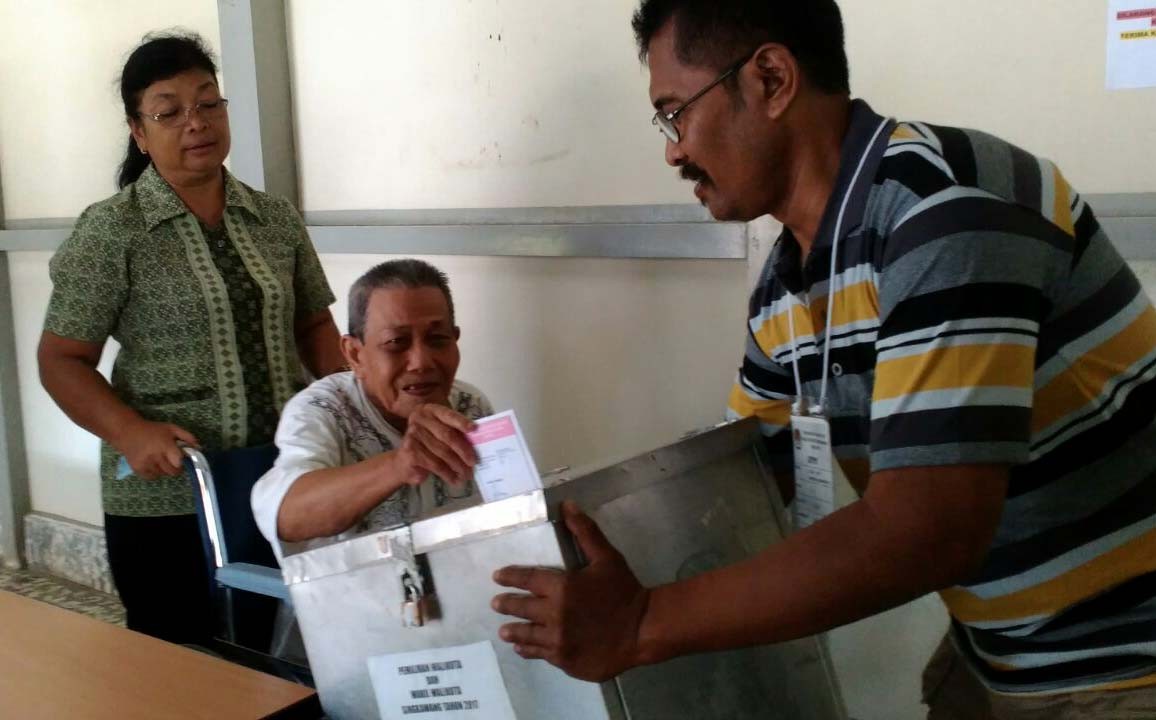Popular Reads
Top Results
Can't find what you're looking for?
View all search resultsPopular Reads
Top Results
Can't find what you're looking for?
View all search resultsStigma, discrimination hamper leprosy eradication
Many who suffer from the disease isolate themselves from their community, embarrassed by their condition.
Change text size
Gift Premium Articles
to Anyone
S
tigma and discrimination continue to hinder people with leprosy from having a normal life, according to World Health Organization (WHO) goodwill ambassador for leprosy elimination Yohei Sasakawa.
Although leprosy medication and an early detection program are now available for free and can be found in health facilities across the country, many who suffer from the disease isolate themselves from their community, embarrassed by their condition.
“We already have the medication to treat leprosy, but it’s more difficult to reduce the stigma and discrimination against patients or former patients than to treat them,” said Sasakawa, who has been a WHO goodwill ambassador since 2001. The Nippon Foundation chairman further said that elimination and better welfare can be achieved through a systematic approach.
Al Qadri, deputy head of the Leprosy Association (Permata), an NGO that specializes in educating the community about leprosy as well as providing counseling for leprosy patients, said that discrimination has prevented many sufferers from receiving the proper treatment.
“Because of the stigma of leprosy, people are afraid that if they go to health facilities to get treatment, then others will know they have such an embarrassing disease. Therefore, many still keep hiding,” he said on Oct. 4.
They are not only discriminated by their community, but also feel insecure and therefore they do not want to go out and join the community, hiding inside their homes, Qadri said.
Indonesia achieved the global target of eliminating leprosy as a public health problem with the prevalence rate of less than 1 per 10,000 people at a national level in 2000, after it had intensified leprosy diagnosis and multidrug therapy starting in 1990.
However, currently, Indonesia has the third-highest number of annual new cases, after India and Brazil. Based on a 2016 WHO report, 16,826 new cases are reported each year, and the number accounts for 7.8 percent of 214,783 new leprosy cases globally.
Sasakawa put a positive light on the findings of new cases, saying that it proved the communities and health facilities are more aware and proactive in finding and treating leprosy cases.
Therefore, he said he was optimistic that the coordination of related institutions and ministries to fight leprosy would be fruitful.
In 2016, family-based case-finding activities were introduced and promoted by the Health Ministry through the Find a Patch campaign, which raises awareness about detecting early signs of leprosy within a family.
The national program aims to eliminate leprosy nationwide by the end of 2019.
West Papua, North Maluku and Papua are three provinces with the highest leprosy prevalence rates in the nation, at 11.48 percent, 4.54 percent and 4.06 percent, respectively.
“Many [in these provinces] still think that the disease is a curse and inherited, and it hampers the treatment, because people with this disease are still neglected by their family and community, forcing them to hide in their room. It makes it difficult for us to eliminate [leprosy] in Indonesia because [those who are hiding] can still be a source of transmission,” said Sitti Ganefa, head of the Health Ministry’s leprosy and yaws division.











